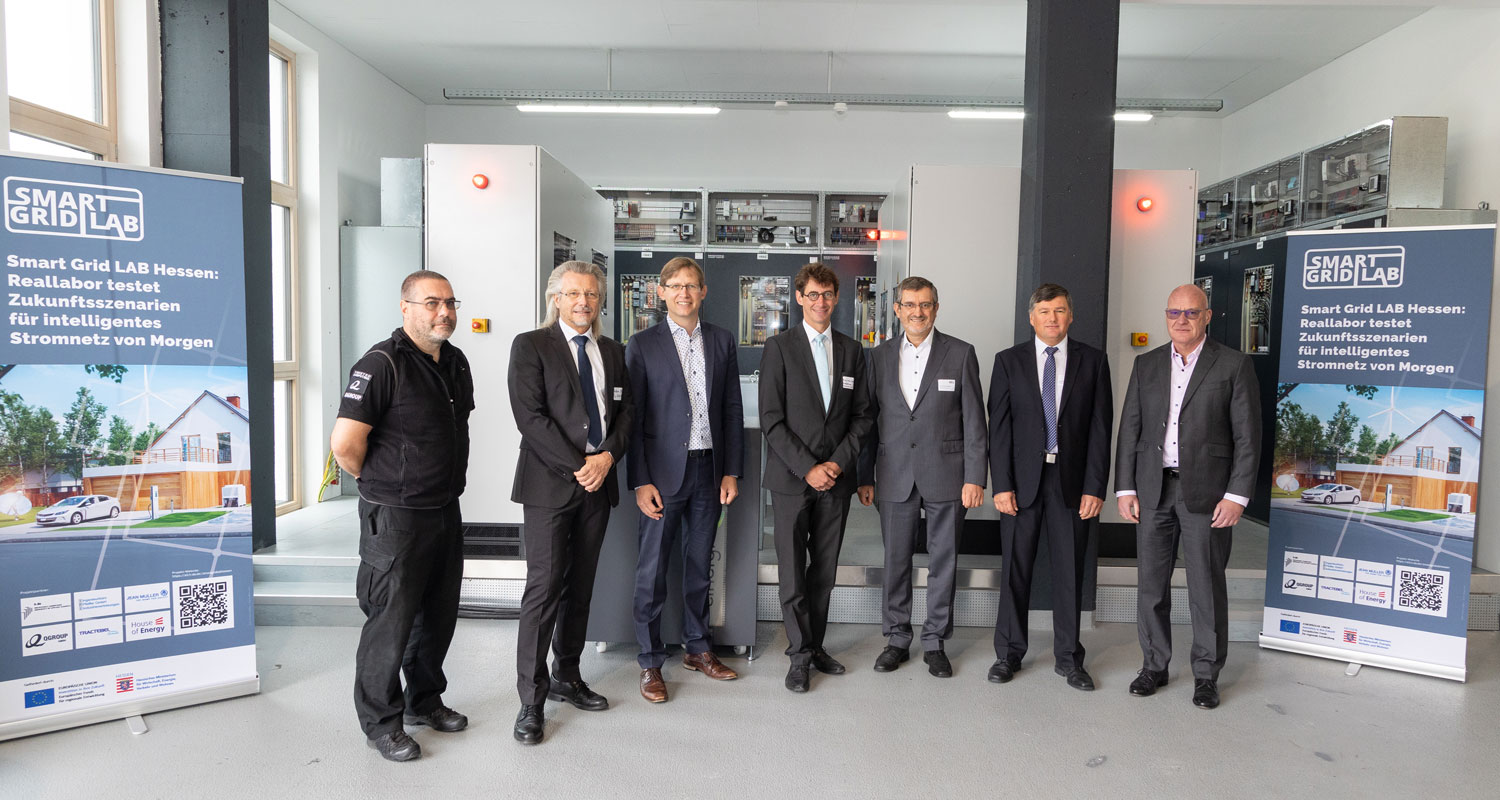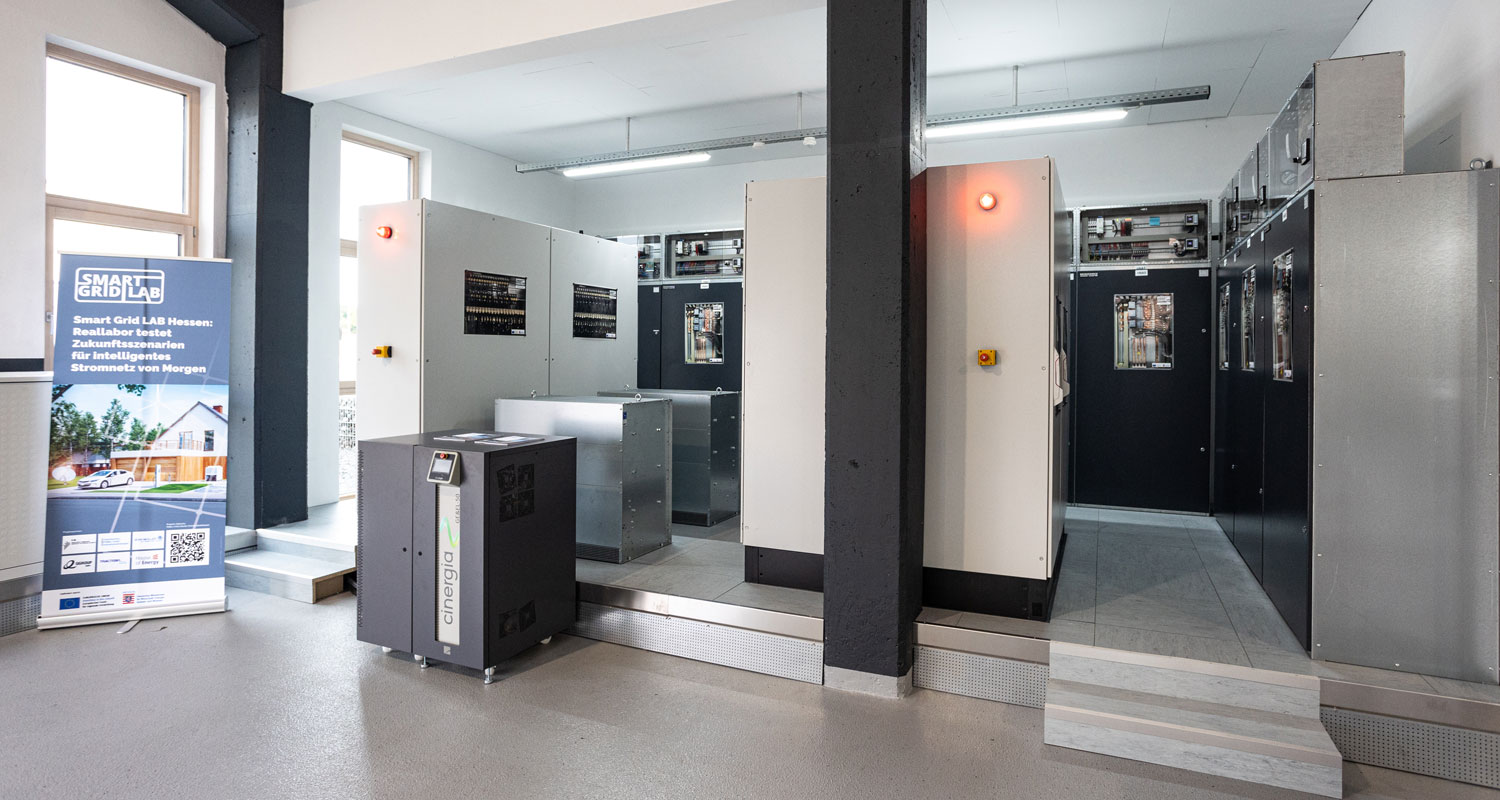Rödermark, September 27, 2022: In the recently commissioned laboratory "Smart Grid LAB Hessen", the project partners Ingenieurbüro Pfeffer, JEAN MÜLLER, QGroup and Tractebel are researching various scenarios of the electricity system of the future under the leadership of Darmstadt University of Applied Sciences. The EFRE-funded project is accompanied and supported by the House of Energy. The laboratory, in which a real, intelligent power grid (smart grid) is set up, is located on the premises of Ingenieurbüro Pfeffer in Rödermark. The investigations provide important answers for the practical introduction of the smart grid: How can grid stability be ensured if many electric vehicles are to be charged on days with low power generation? How can a grid collapse be prevented if, for example, storage systems fail? How can it be detected that hackers manipulate the data and possibly cause a blackout?
In the Smart Grid LAB, what happens in the grid is monitored in real time, and the flow of electricity is controlled according to supply and demand. A paradigm shift is needed to intelligently manage the ever-growing demand for electrical energy with minimal grid expansion. Statically dimensioned grids must become dynamically operated ones. Prof. Dr. Peter Birkner from the House of Energy emphasizes: "Due to the powerful and volatile energy generation as well as the increasing electrification on the application side, the sole grid expansion is far too expensive and requires a far too long implementation time. In addition, the direction of power flow in distribution grids will change regularly in the future."
The project has developed various scenarios under which the Smart Grid LAB will operate. These include the establishment of prosumers. These are customers who temporarily generate and temporarily withdraw electricity. The smart grid collects the energy data, analyzes it and decides autonomously how best to distribute the electrical energy. Flexibilities are used for this purpose. These can be represented by active network elements, such as voltage regulators, or by changing customer load behavior.
Prof. Dr. Ingo Jeromin, Head of the Department of Electrical Power Supply, Renewable Energies and Energy Efficiency at Darmstadt University of Applied Sciences, emphasizes: "Due to the increasing data flows caused by smart components and the high complexity of the power grid, grid management is becoming more and more demanding. It is enormously important to ensure the highest possible protection for all processes and sensitive data. Data security and resilience are central."
Therefore, one focus in the project is on analyzing data security. All energy sources and consumptions are modeled on real-life examples. This means that challenging network situations can also be simulated without risk. The results will be used to derive requirements for use in a real distribution grid in Hesse.
State Secretary Jens Deutschendorf from the Hessian Ministry of Economics points out the great importance of the Smart Grid LAB for Hessen and praises the "experimental space" for the energy system of the future: "Such projects with pioneering character create solutions for an innovative and networked energy system and ensure that the energy transition works technically and is secure. Smart grids are very important for the integration of a higher share of renewable energy sources and thus for the decarbonization and resilience of the energy sector."
Hessian experts from the fields of research, engineering, IT security and the manufacture of electrotechnical switching and measuring components are working together on an interdisciplinary basis in the project. Project partner JEAN MÜLLER develops and manufactures networkable low-voltage switchgear and systems and integrates them into the smart grid infrastructure. Multilevel security manufacturer QGroup is looking at resilience and segregation requirements with regard to IT/OT test sites, the operating equipment used, their networking and control across security boundaries. In this way, risks can not only be reduced in the event of a cyber attack, but also effectively limited. In addition, the project partner Tractebel contributes its experience from international energy infrastructure projects and transfers what it has learned from the Smart Grid LAB Hessen to the national and international context.


